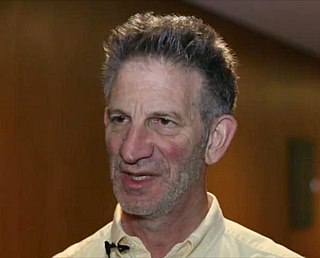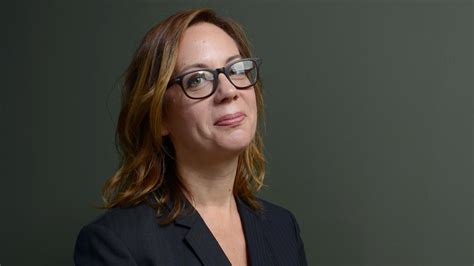A Quote by Carl Friedrich Gauss
It may be true, that men, who are mere mathematicians, have certain specific shortcomings, but that is not the fault of mathematics, for it is equally true of every other exclusive occupation.
Related Quotes
It may be true that people who are merely mathematicians have certain specific shortcomings; however that is not the fault of mathematics, but is true of every exclusive occupation. Likewise a mere linguist, a mere jurist, a mere soldier, a mere merchant, and so forth. One could add such idle chatter that when a certain exclusive occupation is often connected with certain specific shortcomings, it is on the other hand always free of certain other shortcomings.
Pure mathematics consists entirely of assertions to the effect that, if such and such a proposition is true of anything, then suchand such another proposition is true of that thing.... Thus mathematics may be defined as the subject in which we never know what we are talking about, nor whether what we are saying is true.
All men are brothers, we like to say, half-wishing sometimes in secret it were not true. But perhaps it is true. And is the evolutionary line from protozoan to Spinoza any less certain? That also may be true. We are obliged, therefore, to spread the news, painful and bitter though it may be for some to hear, that all living things on earth are kindred.
It is a melancholy experience for a professional mathematician to find himself writing about mathematics. The function of a mathematician is to do something, to prove new theorems, to add to mathematics, and not to talk about what he or other mathematicians have done. Statesmen despise publicists, painters despise art-critics, and physiologists, physicists, or mathematicians have usually similar feelings: there is no scorn more profound, or on the whole more justifiable, than that of the men who make for the men who explain. Exposition, criticism, appreciation, is work for second-rate minds.
All religions, plainly and simply, cannot be true. Some beliefs are false, and we know them to be false. So it does no good to put a halo on the notion of tolerance as if everything could be equally true. To deem all beliefs equally true is sheer nonsense for the simple reason that to deny that statement would also, then, be true. But if the denial of the statement is also true, then all religions are not true.
True religion has a universal quality. It does not find fault with other religions. False religions will find fault with other religions; they will say that theirs is the only valid religion and their prophet is the only saviour. But a true religion will feel that all the prophets are saviours of mankind.
This is in us: a certain sense of denial, a certain sense of groupthink. This is not something that sits on one party line or the other. We've seen it in all permutations throughout history, and at the core of it is a certain insistence that what we want to be true is now true, and what we don't like is now false.
I think that is one of the things that is beautiful about fiction and that you can do through drama. If I was a detective, I could make a certain version of everything we know to be exactly true. And that would have a certain kind of truth value. And there are certain other things that we know that are emotionally true.
All the great enterprises of the world are run by a few smart men: their aides and associates run down by rapid stages to the level of sheer morons. Everyone knows that this is true of government, but we often forget that it is equally true of private undertakings. In the average great bank, or railroad, or other corporation the burden of management lies upon a small group. The rest are ciphers.
When the mathematician says that such and such a proposition is true of one thing, it may be interesting, and it is surely safe. But when he tries to extend his proposition to everything, though it is much more interesting, it is also much more dangerous. In the transition from one to all, from the specific to the general, mathematics has made its greatest progress, and suffered its most serious setbacks, of which the logical paradoxes constitute the most important part. For, if mathematics is to advance securely and confidently, it must first set its affairs in order at home.





































